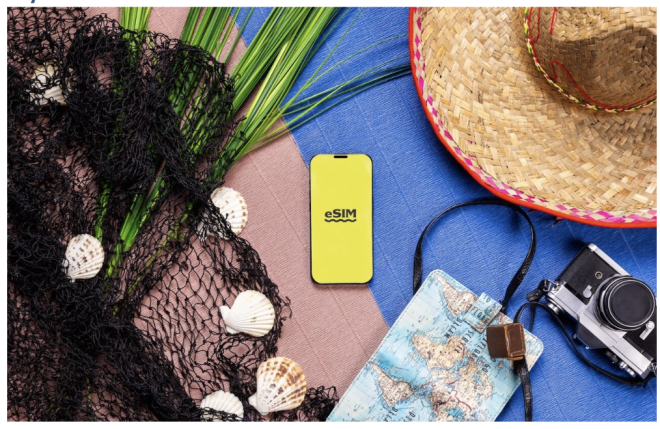- Change theme
From eSIMs to eWallets: How Our Digital Lives Are Replacing the Physical World

These days, it’s not quite as dramatic. Your ID, your bank card, even your house key might already live on your phone.
04:55 16 July 2025
Remember when losing your wallet meant a full-blown crisis? These days, it’s not quite as dramatic. Your ID, your bank card, even your house key might already live on your phone. From eSIMs replacing plastic SIM cards to biometric payments phasing out chip-and-PIN, the physical world is quietly being stripped for parts.
Digital is faster, it’s more convenient, and frankly, it puts you in control. No queues, no paper trails, no fumbling at the till. But as more of our lives move behind screens and touchpoints, it raises a bigger question: are we heading toward a future where physical tools like wallets, keys, even buildings, become obsolete? Or are there things we’ll still want to hold onto?
eSIMs, Digital IDs, and the Death of Plastic
eSIMs, or embedded SIM cards, are quietly killing off the need for those fiddly little bits of plastic we used to swap between phones. Built directly into your device, eSIMs let you switch networks with a few taps, no paperclip needed like with physical sims. It’s part of a wider shift toward digital identity: governments in the UK and abroad are rolling out digital ID cards, driving licenses, and even borderless travel documents.
On the upside, you’ve got less to lose and more freedom to move, especially if you’re juggling personal and work numbers, traveling frequently, or are keen to keep a low profile online. The downside? You’re more dependent on tech than ever, and will be handing over even more data to centralized systems.
As convenience increases, so does the cost, often paid in privacy. But for many, that trade-off’s already been made.
Digital Entertainment Is the New Night Out
When was the last time you queued for cinema tickets or waited for your local pub quiz night to kick off? Entertainment has been moving online for years, but the shift recently accelerated.
Streaming replaced cinema nights, Zoom parties took over Friday drinks, and even clubbing turned into curated playlists and shared Spotify sessions. The same is happening with casinos. High street betting shops and physical casinos are on the decline, squeezed out by the convenience of mobile play and 24/7 access.
This is where online casinos step in, which offer a mobile-first online casino experience built for modern lifestyles. Whether you're into quick slot spins like Aztec Inferno: Gold Eruption or Crabby's Gold during your commute, or long-form blackjack games with live dealers, online casinos make it easy to jump in and play. No queues, no dress code, just pure on-demand entertainment.
Banking Without the Bank: Rise of eWallets and Fintech Apps
Physical banks are quickly becoming relics. With contactless cards, mobile-first banks like Monzo and Starling, and eWallets such as Apple Pay and Google Pay, most people can now manage their money without ever setting foot inside a branch.
According to data from Statista, the number of bank branches in the UK dropped from over 13,000 in 2012 to fewer than 7,000 in 2025, and that decline isn’t slowing down.
Fintech apps now offer everything from budgeting tools to instant currency exchange, making traditional banks feel slow and clunky by comparison. Even crypto wallets, once a fringe tool for Bitcoin enthusiasts, are edging into the mainstream, with everyday users storing digital assets alongside their cash.
The message is clear: your financial life no longer needs a high street address. It just needs a decent Wi-Fi signal.
The Benefits of Going Digital – and What We’re Giving Up
The digital shift brings undeniable benefits: speed, convenience, and a level of personalization that physical tools simply can’t match. Whether it’s paying with a tap or streaming your favorite game on the go, life is increasingly seamless.
Sure, older generations may still carry cash and keep paper records, but digital-first living is quickly becoming the norm, especially for those who’ve grown up with it.
Looking ahead, we’re entering a world of biometric payments, smart rings, and virtual passports. It’s not hard to imagine the day we’ll look back at physical wallets the same way we now view floppy disks… useful in their time, but no longer needed.
